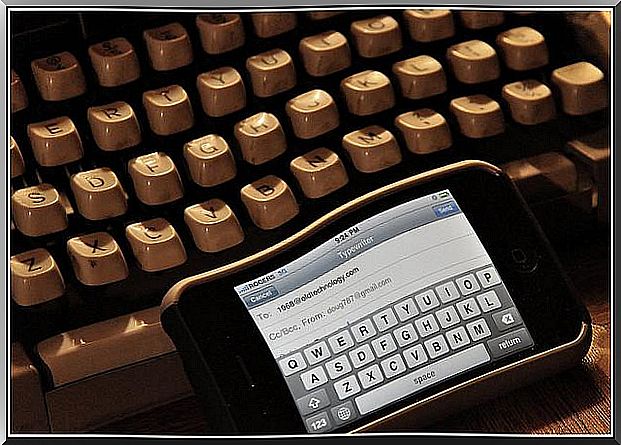What An Email Says About Your Personality

Human beings are expressing ourselves all the time. Even when we sit still in silence, we send a message. Everything in us is language. The gestures, the look, the posture, the way of moving the hands or the way of writing speak of us.
That is why it is not an exaggeration to say that the way we write an email says a lot about who we are and how we see life. Although it is such an impersonal form of bond, since it does not allow us to see the face, nor does it provide specific information about the way of life of the person who writes it, the truth is that an email also reflects our character.
The words and the style
The language is very broad. And yet, sometimes to communicate we choose words that we repeat frequently without realizing it. We could say that everyone has a list of “keywords”, which they use whenever they can, because they perceive that they have greater expressive power than others.
Those words that are part of our personal dictionary say a lot about our character.
People who use many words referring to emotions are more susceptible. If you head your messages with formulas like “Dear” or “Appreciated,” you surely place a lot of value on feelings. Also when they conclude with phrases like “A hug” or “A kiss.” This is more or less obvious.
You have to look at how many words related to emotions they use in each message. This gives a clue to the level of your emotional intensity. But it is not enough to observe the words they use, it is also very important to identify how they use them.
The very correct wording, without spelling errors and very specific, tells us about people with obsessive traits. They are so scrupulous that even in a personal message they invest effort to be correct. On the contrary, those who are very careless in their grammar and send chaotic content are either very creative or have markedly neurotic features.
The size and speed of response
Long emails, without being necessary, reflect a certain insecurity in the person who writes them and a desire for approval. They can also be a sign that something is being hidden: they may say “a lot” to hide what they really mean. The interpretation of the size of the mail depends on the context in which the communication takes place.
Short emails, on the other hand, can reflect disinterest, laziness or excessive zeal. If more information should exist, but the interlocutor limits it to a minimum, they may simply consider that communication as unimportant. If you get to the point and do not write another word, not one less, it may be a person who is afraid of revealing himself to others. This may be due to shyness or a certain sense of guilt, for which he fears “being discovered”.
The emails that are answered instantly tell us about impulsive and emotional people. On the other hand, those who delay in arriving, if there is no external reason that prevents them, reflect calculation in the decisions and a certain distrust with their interlocutor. Those who do not answer, having to do so, adopt a passive-aggressive attitude towards the person who writes to them ; it can be a sign of unspoken conflict or unresolved anger.
No email, of course, is enough to meet a person. But they do give you interesting facts about who it is that writes to you and how they feel in the world.
Image courtesy of caribb









